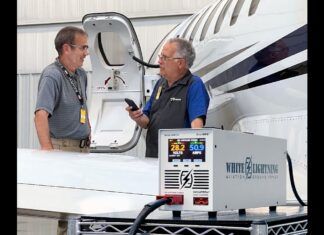Champion has taken exception to our report comparing oil filters in the March 2013 issue and we’re giving the company space this month to offer a rejoinder. Recall that our article in the March issue concludes that we would have no problems installing either the Champion or the Tempest filters in any engine, but we think because it’s $5 cheaper, the Tempest is the better value.

Although Champion argues that the technical features of its filter give it the edge, we remain unconvinced and we’re standing by our conclusion in the March article. Four years ago, in a three-way analysis that included the now-defunct Kelly Aerospace oil filger, we gave Champion the nod. But in reviewing the filters again and on second consideration, we prefer Tempest’s magnet and bypass valve design. Obviously, Champion disagrees and their viewpoint follows.
Champion’s Reply
In 2009, Aviation Consumer ran an article similar to the one in the March 2013 issue, comparing the same filters from the same manufacturers. Although nothing has changed in either filter, Aviation Consumer recommended the our filter as a better-built product in the first article and Tempest in the second.
The 2009 article noted that the Champion filter had a larger, two-piece internal gasket of materials with different densities, more filtration media, a coil spring to keep the media mated to the base and a substantial, separate bypass valve, all of which justified the 25 percent higher price and made it a better product.
We introduced the first spin-on aviation oil filter in 1974. Our original design was similar to the current Tempest design, thus garnering the phrase on the current Tempest filter: “The Original.” In 2002, based on decades of experience, Champion improved the “original” design with the introduction of the “-1” part numbers. We now use a coil spring to hold the media in place—versus the old leaf spring currently used in the less expensive Tempest filters.
Coil Spring
During our field and laboratory testing, the outdated leaf spring design was proven to be susceptible to deformation during cold starts, allowing dirty unfiltered oil to continually circulate back into the engine until the filter is replaced. The coil spring costs more to manufacture, but we are convinced that the increased cost is we’ll worth the added protection it provides to your engine. Our coil spring advantage was noted in both our 2009 and 2013 articles.
While the Tempest filter claims to utilize a spring retention cup to keep the Tempest spring from coming loose and entering the engine, Champion’s filter bypass valves are designed, manufactured, assembled and tested to tight aerospace tolerances to ensure their springs don’t come loose; thus, they don’t require a retaining device like the Tempest filters. This improved Champion design decreases weight and allows for an unobstructed flow of oil around the spring. Our observation was based on Tempest’s claim that the containment cup is an added safety feature.
The author of the Aviation Consumer review stated that he was nearly sold on the ring magnet concept from Tempest, and he asked us at Champion why we didn’t include a ring magnet in our filter. We provided Aviation Consumer with intricate flow diagrams that simulate how small particles retained by the magnet can be blown off the magnet and back into your engine when the filter goes into bypass mode. We understand that the diagrams were not published due to space constraints, but the article did mention our position on the lack of effectiveness the magnet provides. As only ferrous metals would be caught by the magnet, we pointed out that inspecting the filter media for any type of metal is a much more effective means to identify problems within your engine.
We disagree with the comment in the article that while the Champion filters have eight inlet holes versus the four on Tempest filters, it is unlikely they make a sizable difference in performance. Although the additional inlet holes in the Champion filters cost more to manufacture, they more evenly distribute the oil across the filtering media, allowing for more efficient filtration and less possibility of a restriction in the media.
Champion reiterates that we are committed to providing the best filter possible to protect your engine from potential damage. For this reason, we have chosen to manufacture a filter that costs a couple bucks more to ensure that you are flying with the most effective and safest filter available.

